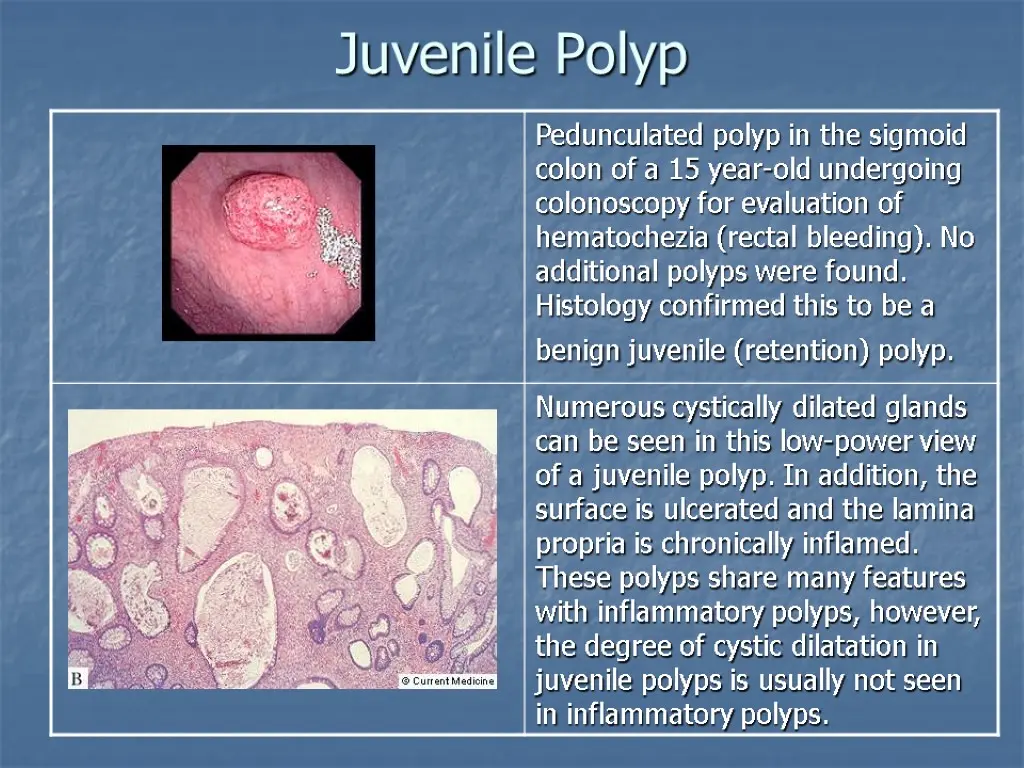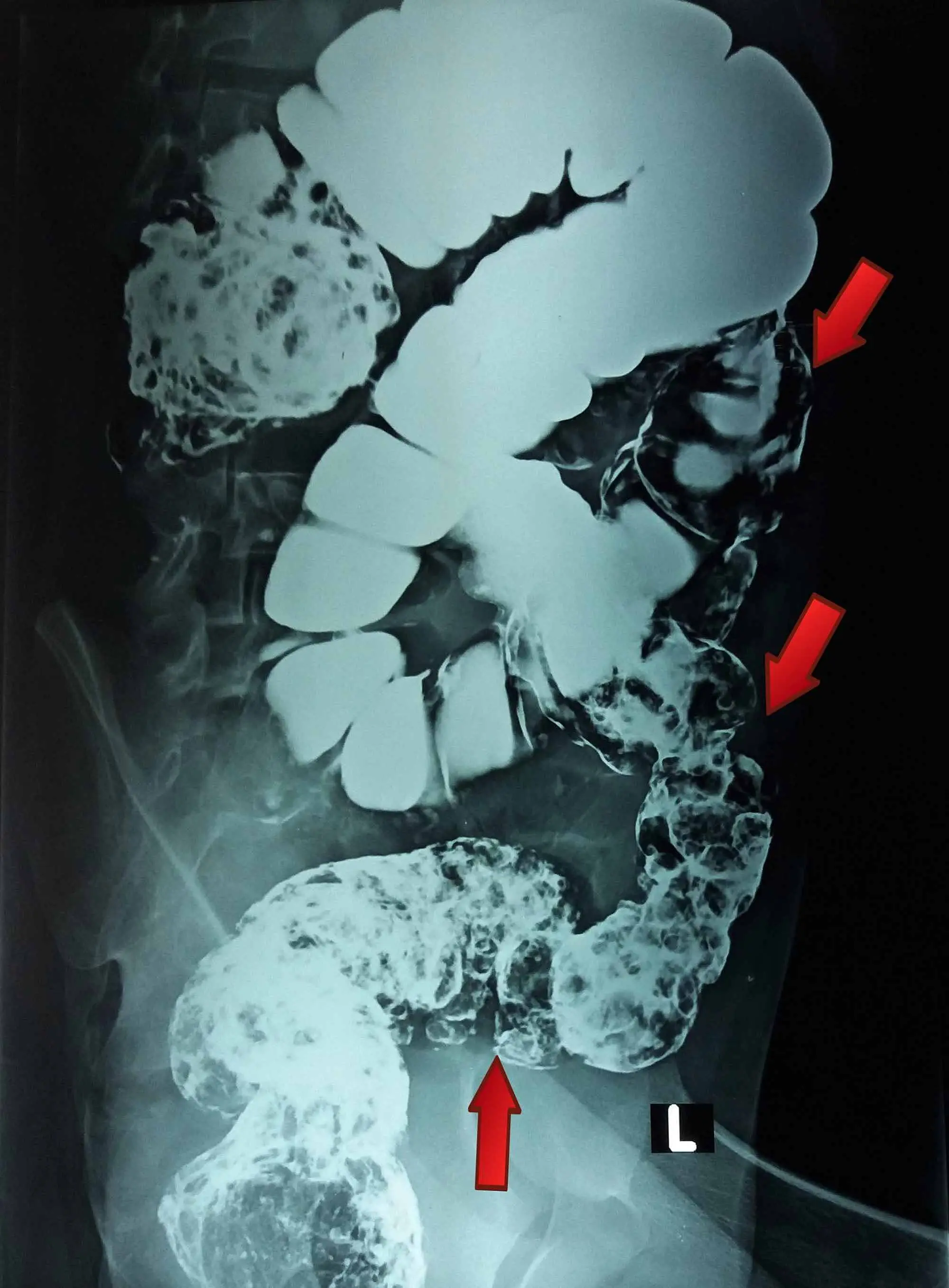Can Juvenile Polyposis Syndrome be Cured?
No
Lifelong management involves surveillance for polyps and addressing complications; outcomes depend on the extent of polyp development and the success of treatment

What is Juvenile Polyposis Syndrome?
Juvenile polyposis syndrome is a genetic disorder characterized by the development of multiple polyps in the gastrointestinal tract. Treatment may involve surveillance, polyp removal, and, in some cases, surgery.

Clinical Aspects

Characteristics
Rare genetic disorder characterized by the development of multiple polyps in the gastrointestinal tract

Symptoms
Gastrointestinal bleeding, anemia, abdominal pain

Diagnosis
Clinical evaluation, sometimes genetic testing

Prognosis
Variable, depends on the severity and interventions

Complications
Gastrointestinal bleeding, complications affecting digestive function
Etiology and Treatment

Causes
Genetic mutations, often affecting the BMPR1A or SMAD4 genes

Treatments
Surveillance and removal of polyps, treatment of complications, sometimes surgery depending on the extent of polyp development

Prevention
Surveillance and removal of polyps, treatment of complications, sometimes surgery depending on the extent of polyp development
Public Health and Patient Perspectives

Epidemiology
Genetic disorder characterized by the development of polyps in the gastrointestinal tract

Patient Perspectives
Monitoring, sometimes surgery
While the information presented here reflects the current knowledge about these conditions and treatments, it’s important to understand that individual cases may differ. Consulting with a healthcare professional is crucial for accurate information tailored to your specific needs.
Share: